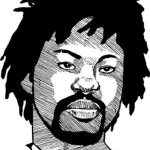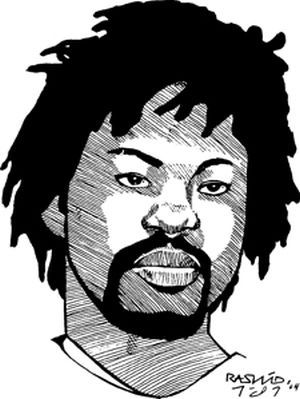Kevin Rashid Johnson on the Prison Strike

This week on the Final Straw, we’re featuring two main events, both themed around the Prison Strike ongoing across Turtle Island until at least September 9th.
First, an interview we conducted with Kevin “Rashid” Johnson. Rashid is a co-founder of the New Afrikan Black Panther Party and is the Minister of Defense from within it’s Prison Chapter. He is the author of two books available from Kersplebedeb, Defying the Tomb & Panther Vision, both collections of Rashid’s art and essays on capitalism, racism, imperialism and his view of a road towards liberation. Rashid is a Maoist and presents some interesting arguments in his writings. In this interview, Rashid talks briefly about his own case, his politicization behind bars, organizing the NABPP-PC, it’s split from the New Black Panther Party, cross-racial class organizing, the #PrisonStrike and more. We hope to be able to bring more of Rashid’s voice in the future. To check out his writing and and his quite literally iconic art, check out rashidmod.com. And at the moment you can write to Rashid at the following address:
Kevin Johnson #1007485
Sussex 1 State Prison
24414 Musselwhite Dr.
Waverly, VA 23891
Next, we’ll hear an audio post-card that some friends put together, interspersing words of encouragement and audio from a noise demonstration outside Hyde prison in Eastern North Carolina on August 20th. Prisoners at Hyde CI met the outside supporters in the yard and from across lines of razor wire they unfurled three banners with simple statements: “parole”; “better food”; & “In Solidarity”. To read an article about the noise demo, see some pictures and hear about NC specific demands, check out the article, “Community Shows Support as NC Prisoners Rally With Banners“ on ItsGoingDown. Make some noise!
To close out the hour, we will hear some words of encouragement to striking prisoners in #Amerikkka from comrades incarcerated in #Klanada!
If you’re in Asheville today (Sunday September 9th), consider dropping by Firestorm at 610 Haywood Rd at 5pm to join #BlueRidgeABC for the monthly political prisoner letter writing night. Supplies will be free as well as info on writing prisoners, names and addresses, and comradery.
. … . ..
Show playlist here.
Continue reading Kevin Rashid Johnson on the #PrisonStrike + Two Audio Zines

